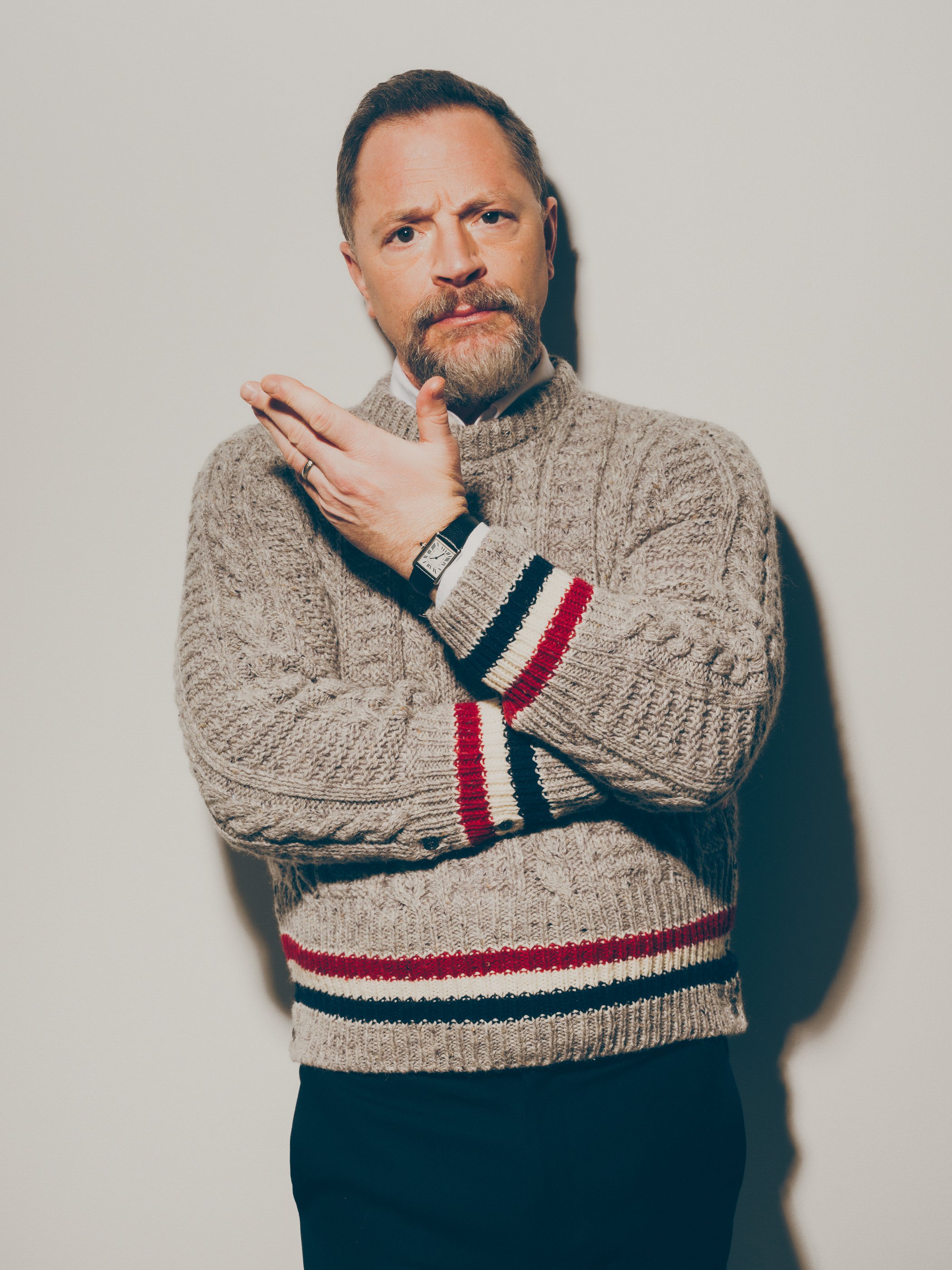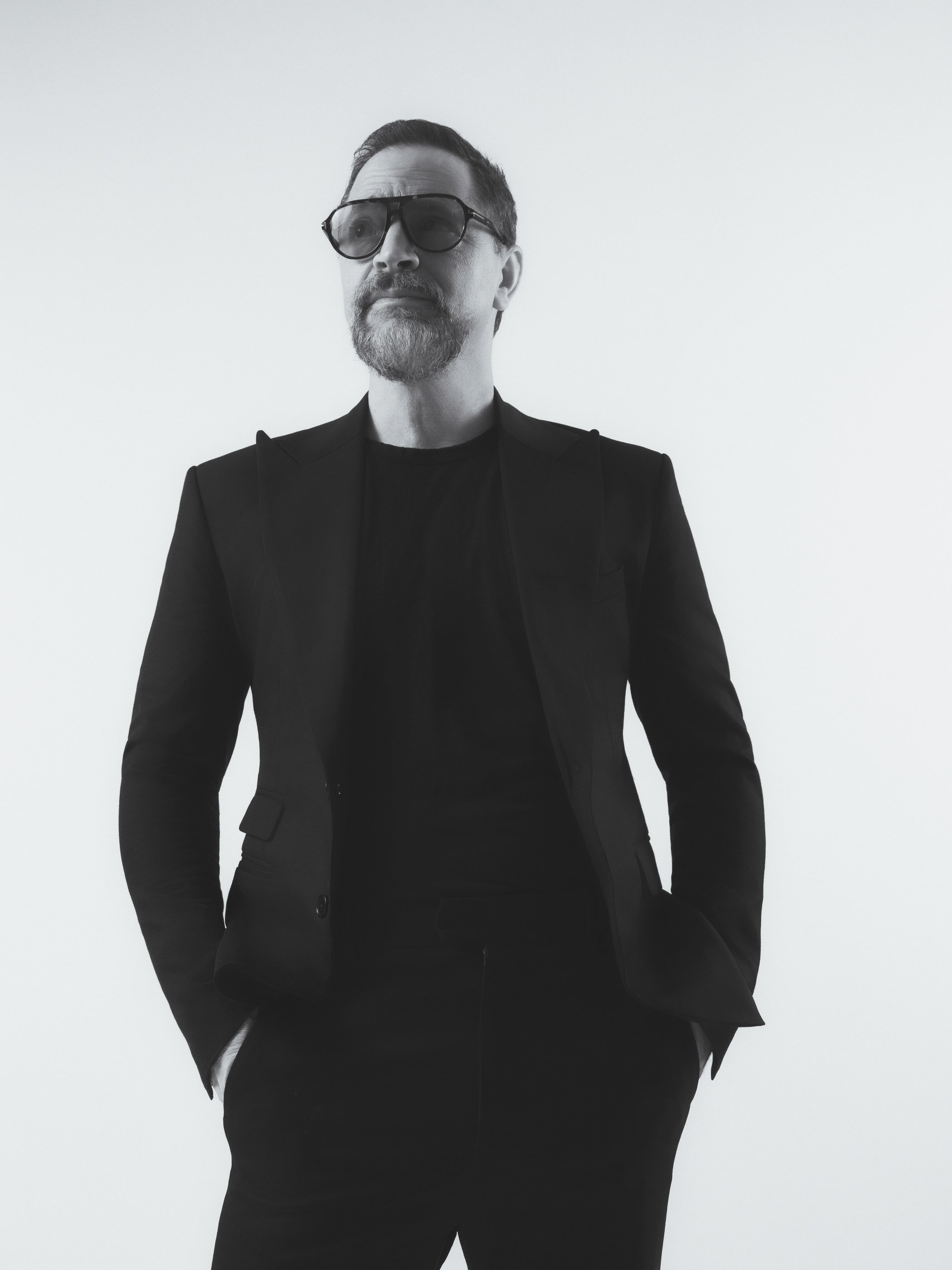Joshua Malina Discusses His Current Role in 'Leopoldstadt' on Broadway
WITH JOSHUA MALINA
from avid reader to seasoned poker player, to taking the Broadway stage once again in the stunning production of Leopoldstadt.
Photography, Charles Roussel
Words, Igee Okafor In Conversation with Joshua Malina
VIEW GALLERY
Before Mr. Joshua Malina embarked on his journey as a full-time actor, he had various interests that kept him busy. From being an avid reader to an experienced poker player, he also attended high school at Horace Mann in the Bronx, New York, where he discovered his love for theater.
After graduation, he made his professional acting debut on Broadway in Aaron Sorkin's A Few Good Men. He subsequently garnered critical acclaim for his performance in the television series Sports Night, which earned him and his castmates a Screen Actors Guild Award nomination for "Outstanding Performance by an Ensemble in a Comedy." Malina's collaboration with Sorkin extended to feature films, including The American President and Malice.
In addition to his impressive work with Sorkin, Malina has a diverse range of television credits, including the ABC comedy series Big Shots, recurring roles in Ryan Murphy's American Horror Story, NBC's American Auto, Showtime's Shameless, USA Network's In Plain Sight, CBS' The Big Bang Theory and Numb3rs, and HBO's The Larry Sanders Show.
He has transitioned seamlessly to other successful productions, including Shonda Rhimes' award-winning drama Scandal and the Netflix mini-series Inventing Anna. He has recently returned to the stage in the Old Globe Theatre's What We Talk About When We Talk About Anne Frank.
Malina's contributions to the entertainment industry extend beyond acting, as he has also created a popular podcast about the hit series The West Wing.
This role has been an enormous challenge that I have savored.
With his return to Broadway in Tom Stoppard’s Leopoldstadt, Malina talks about how it feels like a homecoming. He plays the role of Hermann Merz, the patriarch of a prosperous Viennese family. He shares the process of getting ready for the role, the similarities between Hermann and other characters he’s played in the past, and the lessons he’ll take with him moving forward.
And for those wondering if he's still the notorious prankster, he admits to being on his best behavior as the new guy on set.
Leopoldstadt IS Now Playing on Broadway Extended Through July 2, 2023, at the LONGACRE Theatre in the District of Midtown Manhattan in New York City.
IO: Before embarking on the journey as a full-time actor, what was life like for Joshua Malina?
JM: I have wanted to pursue acting from a young age, so it’s been a lifelong journey. But I have always had other interests. I’ve been a big reader since I was a kid, and I still love to get lost in a great book. My favorite writers include Nathan Englander, J.P. Donleavy, and Jane Austen. I walk daily and ride my Peloton bike regularly, and I have been an avid poker player for over forty years.
IO: Growing up in New York, what was life like in high school and college? Did you receive any accolades that foreshadowed what you would become as a working actor?
JM: I grew up in New Rochelle, in Westchester, county — the suburbs of Manhattan. It was a lovely place to live. One great perk of being so close to the city was seeing many outstanding theaters on and off-Broadway. Sitting in the audience fed my desire to get up on stage myself. I always threw myself into any opportunity to act. I attended Horace Mann in the Bronx for high school, and H.M. had a thriving, vibrant theater scene led by a wonderful guy named Barry Siebelt. His love of theater was infectious, and he directed me to productions of plays that I’m still proud to have been part of.
Returning to Broadway for the first time since appearing in Aaron Sorkin’s A Few Good Men in 1989 is an absolute thrill, and it does feel like a return to home.
IO: It has been incredibly impressive what you’ve been able to accomplish since then, and I find it extremely wholesome that even though you’ve gone on to work on various projects in Film & TV, somehow you end up coming back to Theatre. Does working on ‘Leopoldstadt’ feel like a homecoming?
JM: Yes! Returning to Broadway for the first time since appearing in Aaron Sorkin’s A Few Good Men in 1989 is an absolute thrill, and it does feel like a return to home. I did my first play in decades this past summer — Nathan Englander’s brilliant What We Talk About When We Talk About Anne Frank, at The Old Globe Theater in San Diego. The experience was very special, and when it ended, I was eager to get back onstage. It is a tremendous piece of good luck that the opportunity to appear in Leopoldstadt came along so soon after.
IO: Tell me about the character you play and his contributions to the story.
JM: Leopoldstadt tells the story of a prosperous, interfaith Viennese family over six decades. Tom Stoppard has written a stunning play that chronicles their loves, celebrations, friendships, and tragedies as the years pass, and he has set their stories beautifully against the historic sweep of two World Wars.
I play Hermann Merz, and he is the patriarch of his sizeable Viennese family. He is a well-to-do textile factory owner who has furthered his social and economic standing by converting from Judaism to Catholicism. At the top of the play, he feels that his status among Vienna’s elite is proof of the progress Europe has made regarding prejudice against Jews. Throughout the play, he wrestles with his own identity and questions the complacency and security he once felt as an Austrian citizen.
IO: What was the process like getting ready for the role?
JM: I read some books about Vienna and world history during the period covered in the play. But more than anything, I threw myself into Stoppard’s incredible writing. I read Leopoldstadt countless times and flew to New York to see it after being offered the role. With every exposure to the piece, I have learned or noticed something new. It’s a remarkable piece of writing.
I memorized the role before beginning rehearsals, so I wouldn’t waste precious time with director Patrick Marber. He is a very sharp guy with a keen eye and ear, and he took me through the process of getting ready to step into a significant role, and join a flawless cast. Kate Wilson, the show’s dialect coach, and Deanna Weiner, the associate director, were also incredibly helpful to me.
IO: Are there any similarities you find between Hermann and some other characters you’ve played in the past? Perhaps another character you might have used as inspiration?
JM: I can see some connective tissue between Hermann and Phil, the role I played in What We Talk About…the Englander piece. Both are Jews who grapple with what it means to be a Jew in their respective locations and periods. It has been a heady experience doing these two plays in quick succession.
With every exposure to the piece, I have learned or noticed something new.
IO: How has this role challenged you? Are there any lessons you’ll take with you moving forward on a personal note?
JM: This role has been an enormous challenge that I have savored. It is demanding vocally, physically, and emotionally; candidly, I’d have to admit that it’s a role I was surprised and delighted to have been offered. It’s not, on the face of it, obviously in my wheelhouse. It is challenging to take over a role in a complicated play with a large, spectacular cast, but I feel that I have been encouraged and supported by everyone in the cast and on the crew. The most significant lesson I am taking away is that I should say “Yes,’ when the insecure part of me is yelling “No!”


















